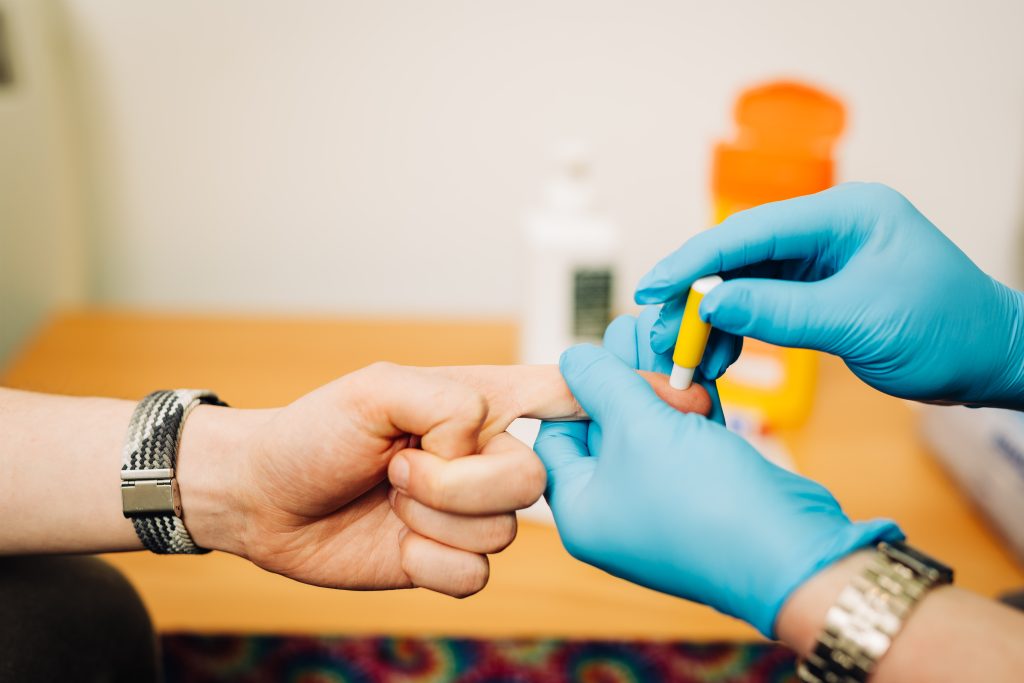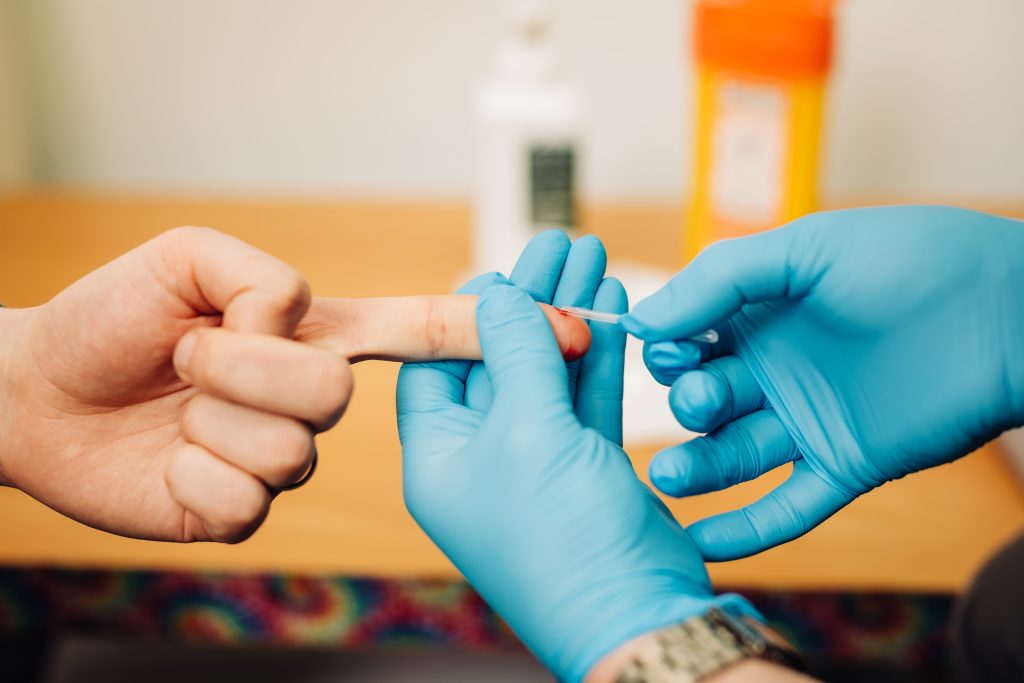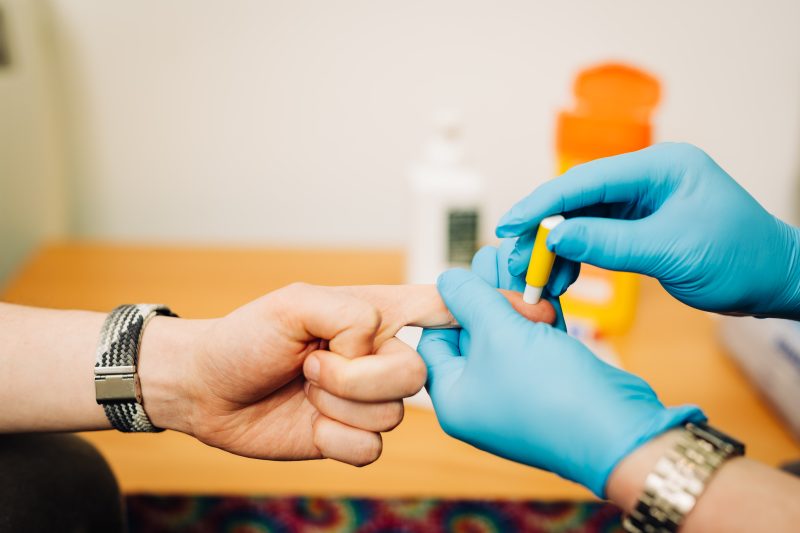We offer rapid HIV and syphilis testing, as well as dried blood spot testing for HIV, hepatitis B and hepatitis C.
Our testing services
Our testing services in Scotland vary according to the area you live in. We can offer testing by appointment in community venues or at one of our drop-in testing clinics.
Dried blood spot testing for HIV, hepatitis B and hepatitis C is available in:
Rapid testing services for HIV and syphilis are available in:
Use our service finder to find testing services near you.
Service finder
Dried Blood Spot Testing
Dried blood spot testing is an easy way to test for HIV, hepatitis B and hepatitis C. This type of test only requires a tiny drop of blood from your finger to be rubbed on a sample card. The sample card is sent away to a lab to be tested for HIV, and hepatitis B and C. The test results take about 2-3 weeks to come back.
Rapid Testing
Rapid testing is a quick and easy way to test for HIV and syphilis. The test requires a tiny drop of blood and results are instant – there is no need to send the sample to the lab.
We hold regular HIV and syphilis testing clinics at the following venues in Edinburgh:
- Crew (32 Cockburn Street, Edinburgh EH1 1PB): Every second Thursday from 5-7pm
Watch the video below to learn more about HIV and syphilis testing at Waverley Care.
Testing process
Step 1
When you arrive for your testing appointment, we will take some details for the test results, such as your name and contact number. This will be kept confidential and will never be shared with anyone without your consent. You may also use a fake name instead of your real name if you wish.

Step 2
Once we have your details, we will move on to the test. This will involve cleaning and pricking your finger with a small needle.

Step 3
For the dried blood spot testing, a drop of blood from your finger is collected on a sample card, which is sent to a laboratory to be tested for HIV, hepatitis B and hepatitis C. The test results take about 2-3 weeks.
For the rapid testing, we will take a small amount of blood from your finger to mix with the test solution. We can read the results for HIV and syphilis in less than 60 seconds.

Step 4
Both types of tests will either show that your result is reactive or negative:
- The reactive result indicates that the test has reacted to something in your blood. This should be confirmed with the blood test in the clinic;
- The negative result shows that there is no indication of infection.
If the test result is reactive, we will refer you to NHS services where you can do a blood test to confirm whether you are HIV positive. We can also answer any questions that you might have and support you with accessing treatment and care services.
Window period
No test can detect the virus immediately after the exposure. The time between when a person is exposed to the virus and when a test can accurately detect it is called the window period.
Both dried blood spot testing and rapid testing have a window period of 3 months. This means if you have been exposed within the past 3 months, it’s not guaranteed that the test will show up as reactive just yet.
This is one of the reasons why we recommend regular testing.
Looking for support?
If you are living with HIV and need support understanding a new diagnosis, treatment or navigating life with HIV, we are here to help. Get in touch with us by filling out our contact form.






